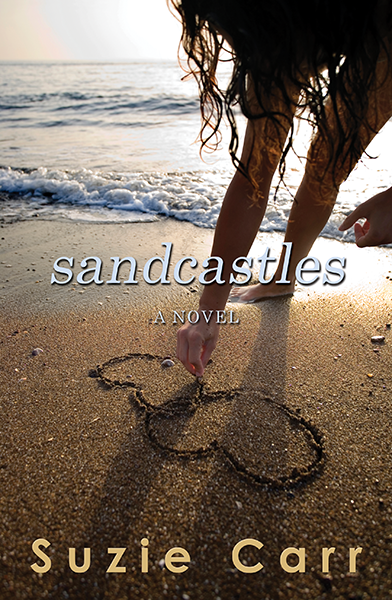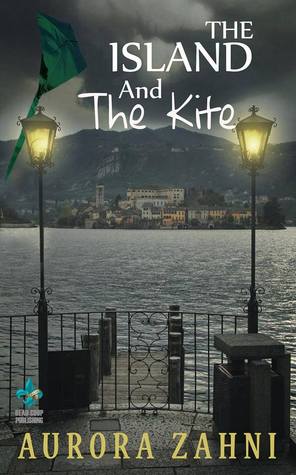I was first drawn to Sandcastles by the element of psychics. As someone who grew up with a grandmother who called herself psychic and was told she also has a similar gift, I have researched and wondered about the world of psychics and energy and spirits for years. I often find myself stuck between the staunch skepticism of my mind and the gut feelings and intuition I feel so in tune with. I started reading this novel with the hope that it would explore a similar conflict, and it did not disappoint.
On the skeptical side we have Lia, a neurotic workaholic who uses her business as an escape from her struggles with love, family and friends. Then we have the psychic, Willow, a divorced mother of two who happened to go to camp with Lia and still harbors residual feelings for her from their childhood. The other main character is Dean, Lia’s assistant and best friend, who is somewhere in the middle—more open-minded than Lia but still caught up in work and the bustle of office life. When Lia and Dean run into Willow at a flea market, all three characters find themselves discovering new, unexpected paths in their lives.
One of my favorite things about Sandcastles is that it switches between Lia and Willow’s points of view, allowing readers to see how they see each other and their own insecurities going into the relationship. Willow expresses how deeply she was wounded by people who did not accept her psychic abilities and made a mockery of her, including Lia during their time at camp together. However, Lia gets to tell her side of the story, how she was scared of the things she did not understand (something she was taught by her upbringing) and was constantly vying for acceptance from her adopted sister—who also went to camp with them and was terrified of Willow—and her parents who put her sister on a pedestal that Lia could never reach.
Carr has one main message in this novel: life is meant to be lived. By trying to get this message through, Carr sacrifices some of the story’s depth. Halfway through the story, the novel becomes mostly about Lia and her need to slow down and become more open-minded. We get to see all of Lia’s dynamics, both good and bad. We learn about her family (and we get to meet every member of her family eventually) and how it operates, about her last serious relationship, how she met her best friend, how she started her own business. We see Lia being closed-minded at times, and we see her being selfish, but it’s all understandable and relatable because we’ve learned why her mind and her life operate the way they do.
Willow, on the other hand, gets a generic backstory of an ex-husband she never really loved who cheated on her, is not a good father, and is now remarried. Like Lia, she had parents who did not accept her and preferred her sister, and they were important to her discovery of her gift, but then they sort of fade away; her mother dies during her childhood from a vague, unexplained illness, and then Willow lives with her aunt who is also psychic and a lesbian. We don’t get to see much of her personality besides some playfulness that comes out in Lia’s presence, and we never get to see her being unfair or unreasonable, or if she is, she is not called on it like Lia is and she never gets to discover new parts of herself like Dean and Lia do.
The other characters mostly serve to pad the novel and reinforce the message of living life to the fullest, including a dying man who is somewhat of a cliché; he has more life in him than any of the other characters, he is always happy and joking, everyone loves him, and confronting death has made him the wise, all-knowing guru of the story. Some of his suffering comes through in the end, but it still does not feel realistic, which is a shame because he could have added some more emotional elements, especially at the end of the novel, but those moments mostly fell flat or took some of the power away from the spots where the writing itself made an emotional impact, such as Lia and Dean’s heart-to-heart near the end of the novel.
Despite some of the weaker aspects of the novel, it was fun to read. Best of all, there was always some kind of tension in the book to keep it interesting, and each of those plot points felt natural and realistic. Plus, this novel is dominated by women, and almost all of the most important characters are queer, and it is always refreshing to read a book like that in this male-dominated, heteronormative society.



